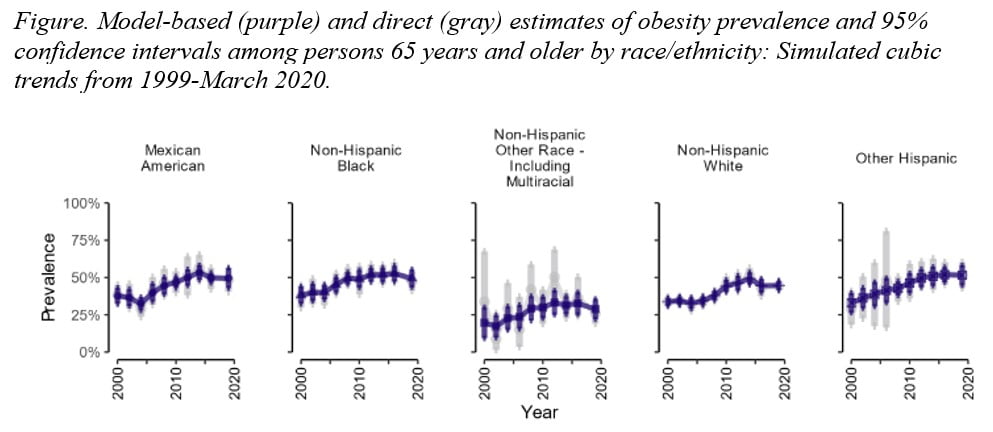Methods/Statistics
Enhancements to the Modified Kalman Filter for Small Domain Estimation Lauren Rossen* Lauren Rossen Makram Talih
Measuring and tracking health disparities for small subpopulations can be challenging because direct estimates for small subgroups may be unstable or unreliable due to small sample sizes or small numbers of events. As a result, estimates for small subgroups may not meet data presentation standards, and analysts may need to aggregate data over larger areas, time periods, or groups to obtain reliable estimates, jeopardizing their timeliness and public health relevance. The Modified Kalman Filter (MKF) is a statistical modeling tool developed in 2011 for the purposes of small domain estimation, borrowing strength over time and across groups to produce more reliable model-based estimates for small subgroups. Recent enhancements to the MKF macro have been made to allow for additional flexibility in modeling non-linear trends, along with improving the transparency and usability of the tool.
Simulated data based on the National Health and Nutrition Examination Survey and the National Health Interview Survey were used to assess the performance of the enhanced MKF approach relative to direct survey estimates based on the root mean squared error (RMSE).
Model-based estimates using the enhanced MKF tool resulted in marked improvements in RMSE relative to direct estimates, with larger improvements seen for smaller sample sizes. Improvements were seen across a wide array of analytic scenarios, including outcomes with higher or lower prevalence, trends that varied from linear to cubic, trends that were shared or varied by group, as well as trends that involved unequally spaced time points. In all cases, relative RMSEs were smaller for model-based estimates than direct estimates. Gains in equivalent sample size of up to 420% were observed.
The enhanced MKF macro can be used to produce model-based estimates of health outcomes for small subpopulations, which will improve the availability of data for the assessment and monitoring of disparities in small groups.

